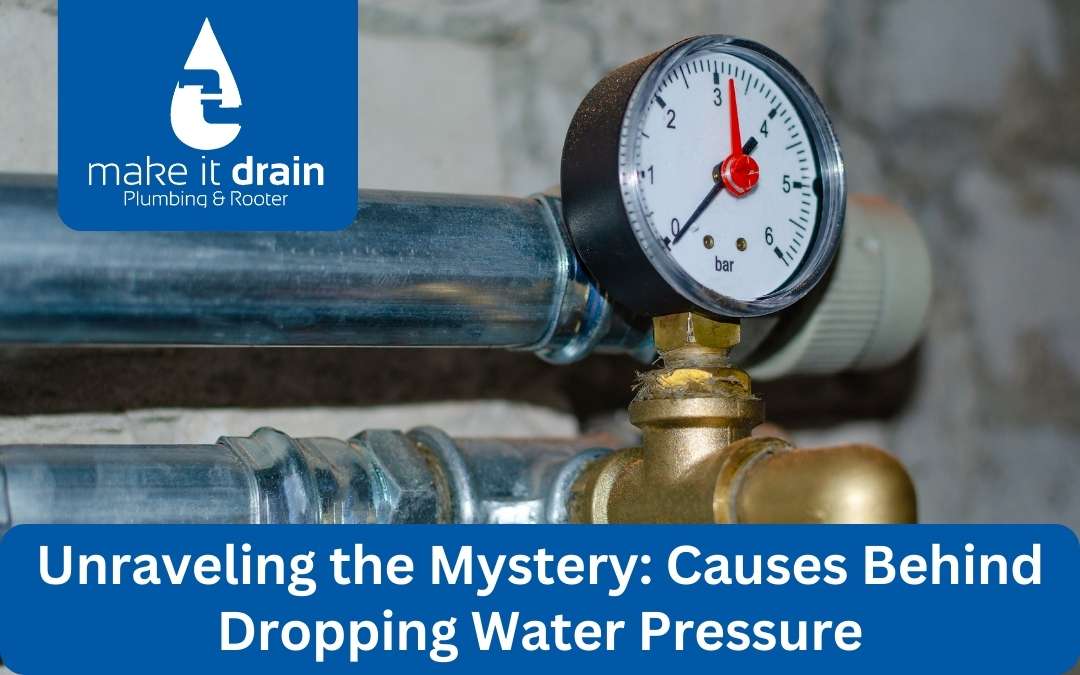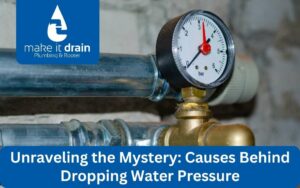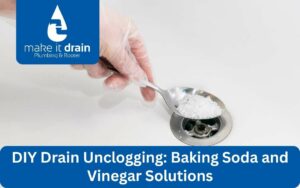Dropping water pressure in your home can be more than just an annoyance; it can signal underlying plumbing issues that need attention. Unraveling the mystery behind this phenomenon involves understanding the various causes that can affect water pressure. Here are some potential causes:
1. Clogged Pipes
Clogged pipes are one of the most common reasons for reduced water pressure. Over time, pipes can accumulate mineral deposits, sediment, and debris, narrowing the path for water flow and reducing pressure.
2. Corroded Plumbing
In older homes, corrosion inside pipes can lead to obstructions and reduced water flow. Metal pipes, especially galvanized steel, are prone to corrosion over time, which can significantly decrease water pressure.
3. Water Leaks
Leaks in your plumbing system can divert water away from where it’s needed, leading to noticeable drops in water pressure. Even small leaks can have a significant impact over time.
4. High Demand
Water pressure can drop during peak usage times when multiple water fixtures are in use simultaneously, or when your community water system is under high demand, such as during hot weather when many people are watering lawns.
5. Faulty Fixtures
Sometimes, the issue is with the fixtures themselves. Faucets and showerheads can become clogged with mineral deposits, reducing water flow and pressure.
6. Pressure Regulator Failure
If your home is equipped with a pressure regulator, this device can fail, causing a significant drop or increase in water pressure. These regulators need periodic inspection and replacement.
7. Municipal Supply Issues
Water pressure issues can stem from problems with the municipal water supply, such as broken main lines, ongoing maintenance, or adjustments in the water supply system.
8. Water Valve Issues
Partially closed or malfunctioning water valves, whether it’s the main house shutoff valve or the meter valve, can restrict water flow and affect pressure.
9. Plumbing System Design
Inadequate plumbing design or undersized pipes can lead to problems with water pressure, especially in rapidly growing areas or in homes where significant renovations have been made without upgrading the plumbing system.
10. Altitude and Gravity
Water pressure decreases as the elevation increases. Homes located at the top of a hill or in high-rise buildings may experience lower water pressure due to the effects of gravity and elevation on water flow.
💧Having Problems with Low Water Pressure?
Don’t let low water pressure disrupt your daily routine. Contact Make It Drain Plumbing & Rooter for expert diagnostics and solutions. Our experienced team can identify the root cause of your water pressure issues and provide efficient, lasting fixes. Whether it’s a hidden leak, clogged pipes, or a problem with the municipal supply, we’re here to restore your water pressure and ensure your plumbing system operates at its best. For more information on addressing low water pressure issues, reach out to us today!






